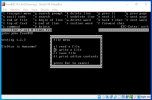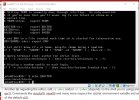I am wondering about certain packages in the repository. If it is a stupid question, then so be it but i really do not know the answer. I am new to FreeBSD.
I am used to being able to download software from various sources (sourceforge, github, official websites, etc) and install it on Windows and also on Linux. I know, from Linux, that software often has dependencies. However, Linux usually downloads and installs dependencies for us from the package manager. Yet one can extract a tar file in the Linux home directory and run the software. Windows is superior in this aspect, it just works and doesn't have these problems. I can install Microangelo 5.5 on Windows 10 and never hear the word dependency. So i am not used to this concept.
I know that FreeBSD is somehow able to run Linux software but certain (or most?) software needs ported. Yet i do not know the extent of ported software. For example, is nano ported to FreeBSD or can i download and install it from ftp.gnu.org? where can i find a list of pen source software that runs on FreeBSD without porting?
I want to archive certain software and its dependencies. I've started downloading today. I have grabbed gcc, gnu make, gzip, nano, and pkgconf. Then it dawned on me: can i even install these files on FreeBSD?
using sslsplit as my example: i have downloaded sslsplit-0.5.5.tar from the official site (roe.ch/SSLsplit) and i checked the freshports.org info about sslsplit. I grabbed libevent-2.1.12-stable.tar.gz, pkgconf-2.3.0.tar.xz and make-4.4.1.tar.lz dependencies from the website specified in the WWW category of their respective freshports.org pages. Would this not work? then, where can i get these files specifically for FreeBSD?
I hope that i have explained it well enough to get some replies. I'd like to archive my favorite software and its dependencies.
Thank you,
John
I am used to being able to download software from various sources (sourceforge, github, official websites, etc) and install it on Windows and also on Linux. I know, from Linux, that software often has dependencies. However, Linux usually downloads and installs dependencies for us from the package manager. Yet one can extract a tar file in the Linux home directory and run the software. Windows is superior in this aspect, it just works and doesn't have these problems. I can install Microangelo 5.5 on Windows 10 and never hear the word dependency. So i am not used to this concept.
I know that FreeBSD is somehow able to run Linux software but certain (or most?) software needs ported. Yet i do not know the extent of ported software. For example, is nano ported to FreeBSD or can i download and install it from ftp.gnu.org? where can i find a list of pen source software that runs on FreeBSD without porting?
I want to archive certain software and its dependencies. I've started downloading today. I have grabbed gcc, gnu make, gzip, nano, and pkgconf. Then it dawned on me: can i even install these files on FreeBSD?
using sslsplit as my example: i have downloaded sslsplit-0.5.5.tar from the official site (roe.ch/SSLsplit) and i checked the freshports.org info about sslsplit. I grabbed libevent-2.1.12-stable.tar.gz, pkgconf-2.3.0.tar.xz and make-4.4.1.tar.lz dependencies from the website specified in the WWW category of their respective freshports.org pages. Would this not work? then, where can i get these files specifically for FreeBSD?
I hope that i have explained it well enough to get some replies. I'd like to archive my favorite software and its dependencies.
Thank you,
John


